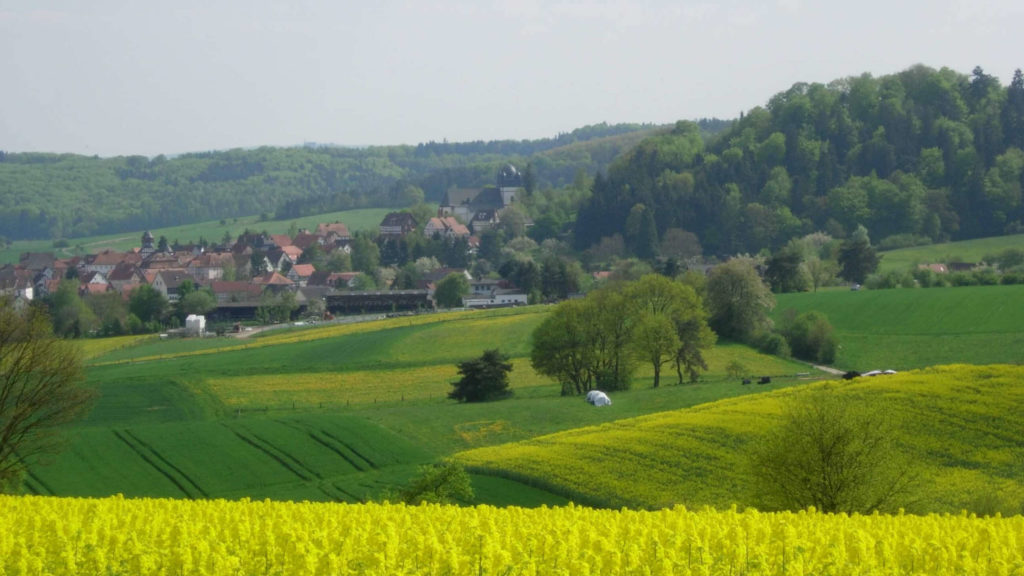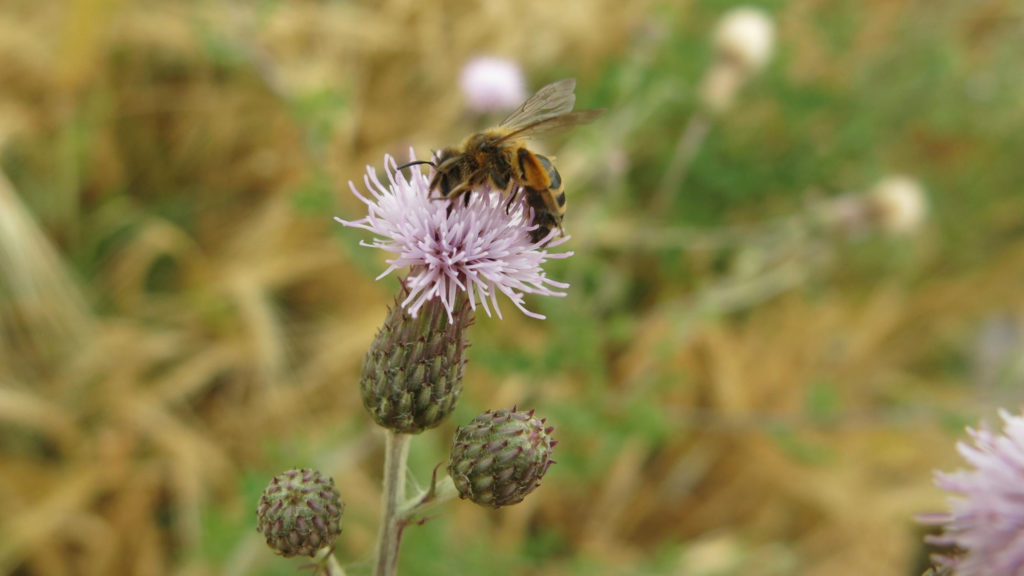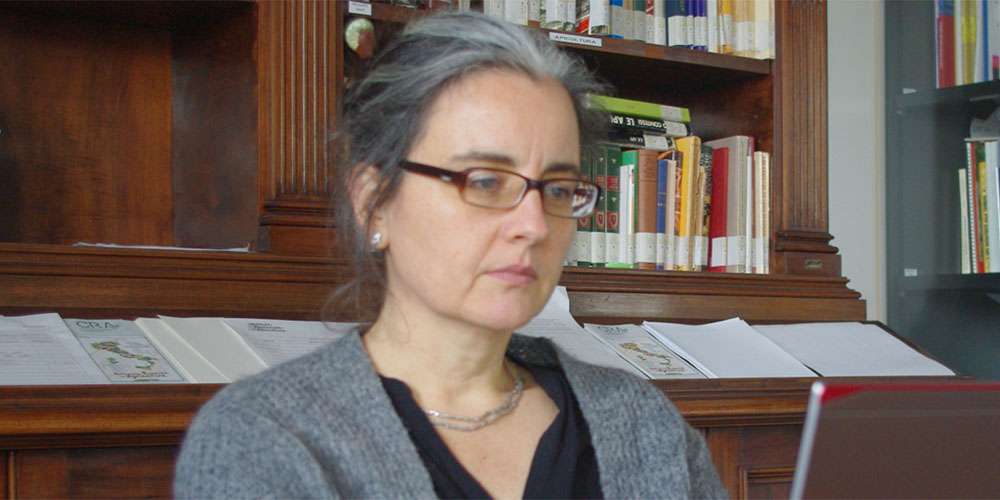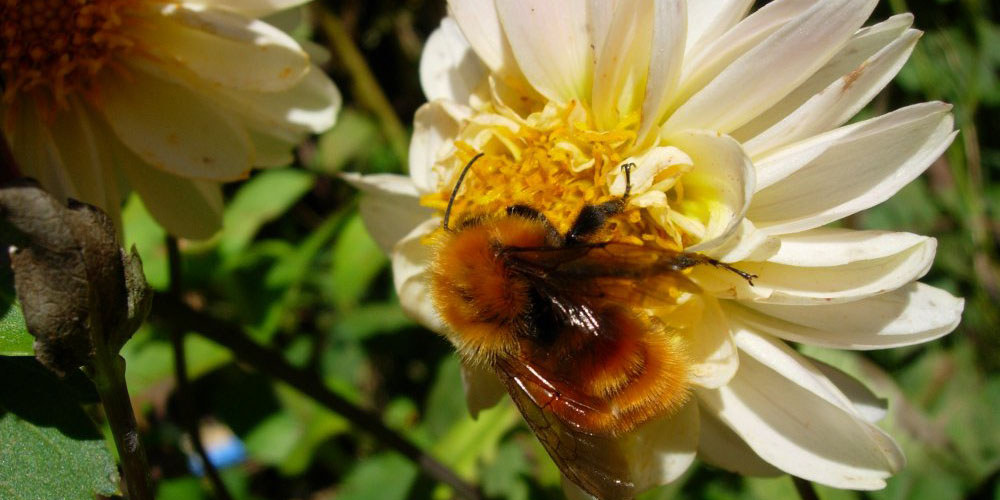“Pollination services”, “without bees our dinner tables will look differently”, “bees are important for a healthy and tasty diet” – phrases like this sooner or later come up in every campaign that wants to “save the bees”. I’ve used them myself. And probably will continue to do so, because it evokes a personal interest. However, I’m feeling more and more uncomfortable with the outgrowths this is generating. Bee hotels, seed mixes and even t-shirts – all of them are meant to save the bees. You know, I don’t like simplifications. However, apparently these things mobilize a lot of people. I’ve been thinking quite a lot about the reasons for this.
Biodiversity is an important value for me. This isn’t so much about the facts I know. It all started with my father: he was always full of awe for big trees, flowering meadows, the birds in the garden or the change of the seasons. Like my niece put it: everything was an adventure with him. He gave me a bird feeder for my window, which is the very origin of my decision to study biology. At the age of 10. With the adventure and the awe came the curiosity and desire to understand. I was reminded of this listening to the amazing podcast from IPBES, the world biodiversity platform. All this together is the origin of this series on what bees need.
Pollination services – or how bees relate to us
Pollination services may seem abstract, but they’re actually the connection between pollinators and us. When you tell people that one of three bites of our food comes from bees it becomes important to them. Even if the fact isn’t totally accurate, everyone immediately understands. Some of them may stop there and won’t do anything. In others, this seed will grow. They may make their garden a little bit more insect-friendly. Or engage themselves in an environmental organisation. Or learn as much as they can and share their photos on social media. Every little bit counts.
Of course, there’s also a downside to this. Arguing with the benefit we have from bees and other pollinators alone limits the discussion to a quite selfish and economic “value”. The word “pollination services” already sounds like business, not that much like nature. In their very interesting paper, Deepa Senapathi and colleagues explain very well that managing crop pollination and bee conservation aren’t the same. Also because about 80% of our crops are pollinated by only 2% of all pollinator species. I already heard the argument that we don’t need that many pollinators, only those who pollinate our crops. And maybe even honey bees would be enough. The answer to this generally is the intrinsic value of diversity. Which is true, but I’m not that sure that a moral argument convinces someone at that level.
Pollinator diversity and pollination services
Another reasoning could be more successful: relying on a single pollinator is risky. For instance, stone and pome fruit are dependent on insect pollination. It’s important both for the yield and the quality. For this reason, beekeepers place their hives next to orchards: it’s a good crop for honey bees developing after winter and farmers pay a pollination fee. However, it’s not as easy as it sounds: honey bees like it quite warm and begin to fly outside only with about 12-15°C. Cherries, pears and apples, on the other hand, flower very early in spring. Temperatures are below the “honey bee threshold” quite often in this time.

In a study I did in apple orchards some years ago, I hardly ever saw honey bees in the flowers. Not even at the orchards with colonies standing at their edges. It was mostly mining bees, bumblebees, and hoverflies who did the job. Relying only on honey bees wouldn’t be very promising for the apple growers of Herefordshire. There are plenty of other studies showing that best pollination results from a diverse pollinator community. Plus, diversity adds resilience to a pollination system. Meaning that if by some reason one pollinator doesn’t do the job, there are others taking over.
Honey bees rely on diversity, too
But let’s talk about honey bees a little bit. They rely on diversity, too. Beekeepers often mix up their interests with those of the bees. They think that a mass flowering crop like an apple orchard, an oilseed rape or sunflower field is what bees need. Now that we’re learning more and more about honey bee nutrition, it’s obvious that this isn’t right. A long-term study in France showed very clearly that bees rely on diversity for pollen. They collect it on wildflowers. Those which beekeepers think aren’t productive. However, quantity is ok for nectar, but they need diversity and quality for pollen. And we’re also learning a lot about the role of pollen and honey bee health as well.

If we want the pollination services, we have to think of what bees and other pollinators need. We have to understand that diversity is important. For honey bees, for all pollinators, for all living beings. We need to understand not only by the facts but by experience. With adventures and curiosity. With more parents that feel the same awe as their children in front of a flowering meadow.



